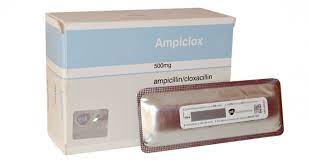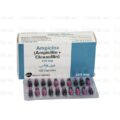An abortion is when a pregnancy is ended so that it does not result in the birth of a child. Sometimes this is called ‘termination of pregnancy’. Medical abortion is the use of pills to cause a miscarriage. It represents a particularly important advance in abortion technology because it is bringing women’s access to safe abortion closer to home.
According to a study in the International Journal On Sexual And Reproductive Health And Rights, In every country in the world, women with unwanted pregnancies seek induced abortions, safe or otherwise. Unsafe methods of abortion, particularly invasive methods, can kill and injure women, and some 13% of all maternal deaths are the result of abortions with unsafe methods provided in suboptimal conditions by unskilled providers. Medical abortion, with or without the involvement of a health care provider, is helping to reduce deaths and morbidity from complications such as sepsis and uterine perforation leading to hysterectomy, arising from unsafe invasive procedures, in places where most abortions are still illegal.
What is Beecham Ampiclox?
Beecham Ampiclox is a broad spectrum formulation of Ampillicin Trihydrate (6 amino-penicillianic acid) and Cloxacillin Sodium (isoxazolyl penicillin) having a broad spectrum activity against a wide range of Gram-negative and Gram-positive bacteria. It is produced by The Beecham Group plc a British pharmaceutical company.
Each capsule contains Ampicillin Trihydrate BP equivalent to Ampicillin 250mg and Cloxacillin Sodium BP equivalent to Cloxacillin 125mg and each 5ml of re-constituted suspension contain: Ampicillin Trihydrate BP equivalent to Ampicillin 125mg and Cloxacillin Sodium BP equivalent to Cloxacillin 125mg.
How Does Beecham Ampiclox Work?
Ampiclox is active against a wide range of Gram-negative and Gram-positive bacteria including Streptococci, Staphylococci (penicillinase producing strains), Haemophilus influenza, Escherichia coli, Proteus mirabilis, Salmonella species and Neisseria species.
Both Ampicillin and Cloxacillin are bacterial agents. They act by interfering with synthesis of the peptidoglycan layer of the cell wall, which normally protects the bacterium from its environment. Defective wall synthesis renders the cell incapable of withstanding the osmotic gradient between the cell and its environment so that it swells and explodes. Synergy has been demonstrated between Ampicillin and Cloxacillin against some beta lactamase producing organisms.
Can Beecham Ampiclox Be Used For Abortion?
Beecham Ampiclox is an antibiotic and not a contraceptive or an abortifacient drug. The effect of this medicine in pregnant women is not clearly known and animal studies have not shown any undesirable effects on the developing fetus and it is usually considered safe.
Using this drug for abortion is not only ineffective but unsafe. Nigeria is one of the countries with the highest maternal mortality in the world and a significant proportion of it has been attributed to unsafe abortion.
There are several factors that expose women to the risk of unsafe abortion like; unplanned pregnancy and for various reasons the pregnancy becomes unwanted. Unsafe abortion can have several health consequences from short term of bleeding, sepsis or perforation of the uterus to the long term of chronic pelvic pains or secondary infertility.
In Nigeria, abortion is legal only when performed to save a woman’s life. Still, abortions are common, and most are unsafe because they are done clandestinely, by unskilled providers or both. Unsafe abortion is a major contributor to the country’s high levels of maternal death, ill health and disability. Nigeria has one of the highest maternal mortality ratios in the world, and little improvement has occurred in recent years.
What’s the Best Birth Control Option?
The best birth control is the one that most effectively prevents pregnancy and fits with your lifestyle. Generally, a male condom plus another form of birth control is the most effective way to prevent pregnancy.
What’s “best” among birth control methods differs from person to person. What’s right for you may not be right for everyone. And your needs may change over time.
Here’s what to think about when choosing a kind of birth control:
- How fail-proof do you need your protection plan to be?
- How much does the cost matter?
- How important is your privacy?
- Do you have a regular partner whose needs you care about?
- Do you need to protect against sexually transmitted diseases (STDs)?
- How much effort do you want to make to prevent a pregnancy?
- If you’re a woman, does it matter if your period is affected?
- Will you someday want to have a child?
The types of methods are:
Behavior. This is something you or your partner has to do.
Barrier. This type goes on or in your body before you have sex to block sperm from getting to the egg.
Hormonal. This type changes a woman’s body chemistry. (Depending on the hormones, it stops ovaries from releasing eggs, thickens the mucus around your cervix to keep sperm from reaching the egg, or thins the lining of the uterus.)
Medical. This is a procedure that changes your body.
Birth Control Effectiveness
When doctors talk about how effective a birth control method is, there are different rates when it’s used “ideally” (exactly the way it was designed) or “typically” (by the average person in real life). “Typical” use takes into account that people can’t or don’t always use birth control correctly or consistently. Keep in mind that out of every 100 women who don’t use any birth control, about 85 will get pregnant within a year.







